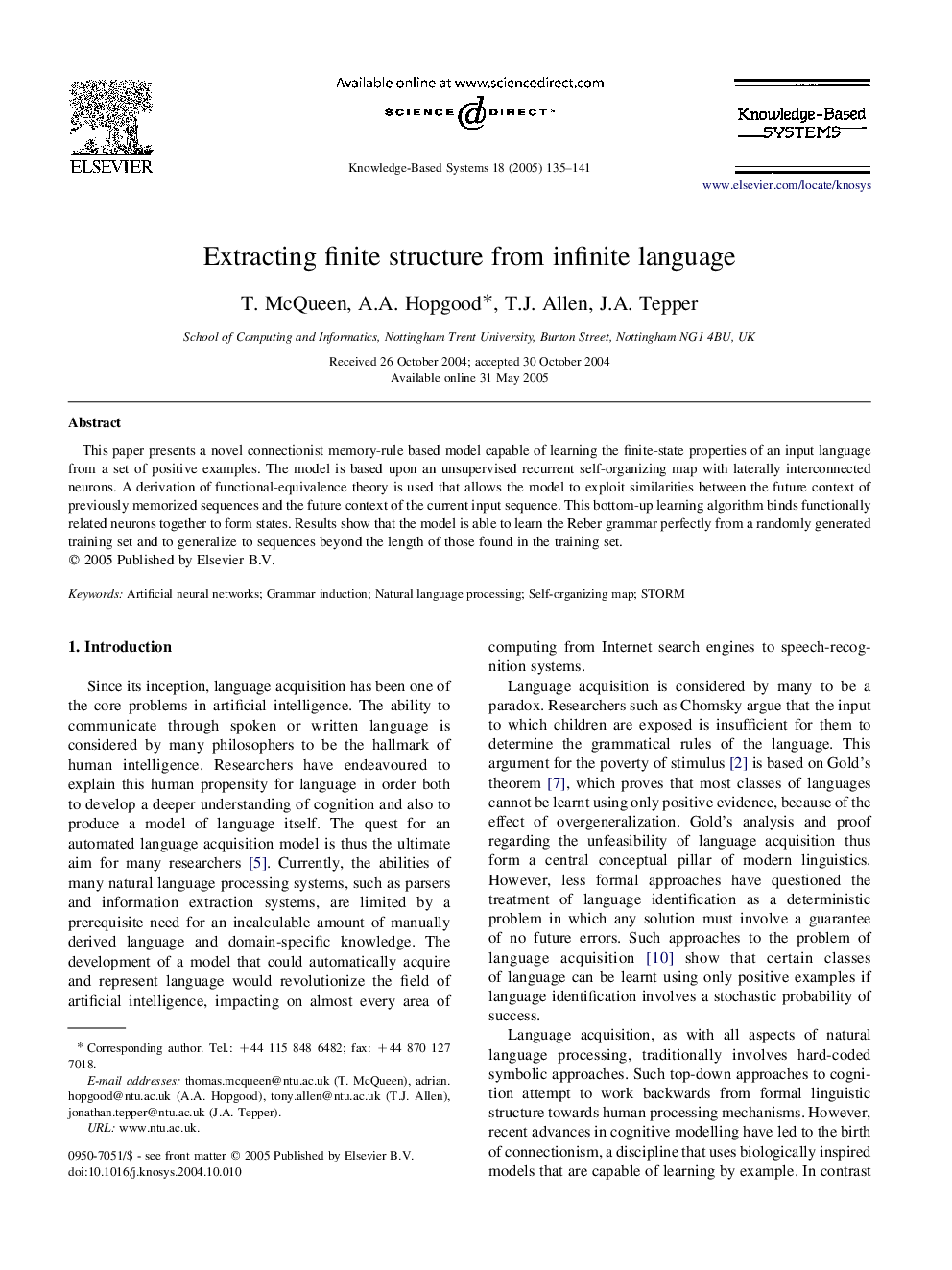| Article ID | Journal | Published Year | Pages | File Type |
|---|---|---|---|---|
| 9652948 | Knowledge-Based Systems | 2005 | 7 Pages |
Abstract
This paper presents a novel connectionist memory-rule based model capable of learning the finite-state properties of an input language from a set of positive examples. The model is based upon an unsupervised recurrent self-organizing map with laterally interconnected neurons. A derivation of functional-equivalence theory is used that allows the model to exploit similarities between the future context of previously memorized sequences and the future context of the current input sequence. This bottom-up learning algorithm binds functionally related neurons together to form states. Results show that the model is able to learn the Reber grammar perfectly from a randomly generated training set and to generalize to sequences beyond the length of those found in the training set.
Keywords
Related Topics
Physical Sciences and Engineering
Computer Science
Artificial Intelligence
Authors
T. McQueen, A.A. Hopgood, T.J. Allen, J.A. Tepper,
